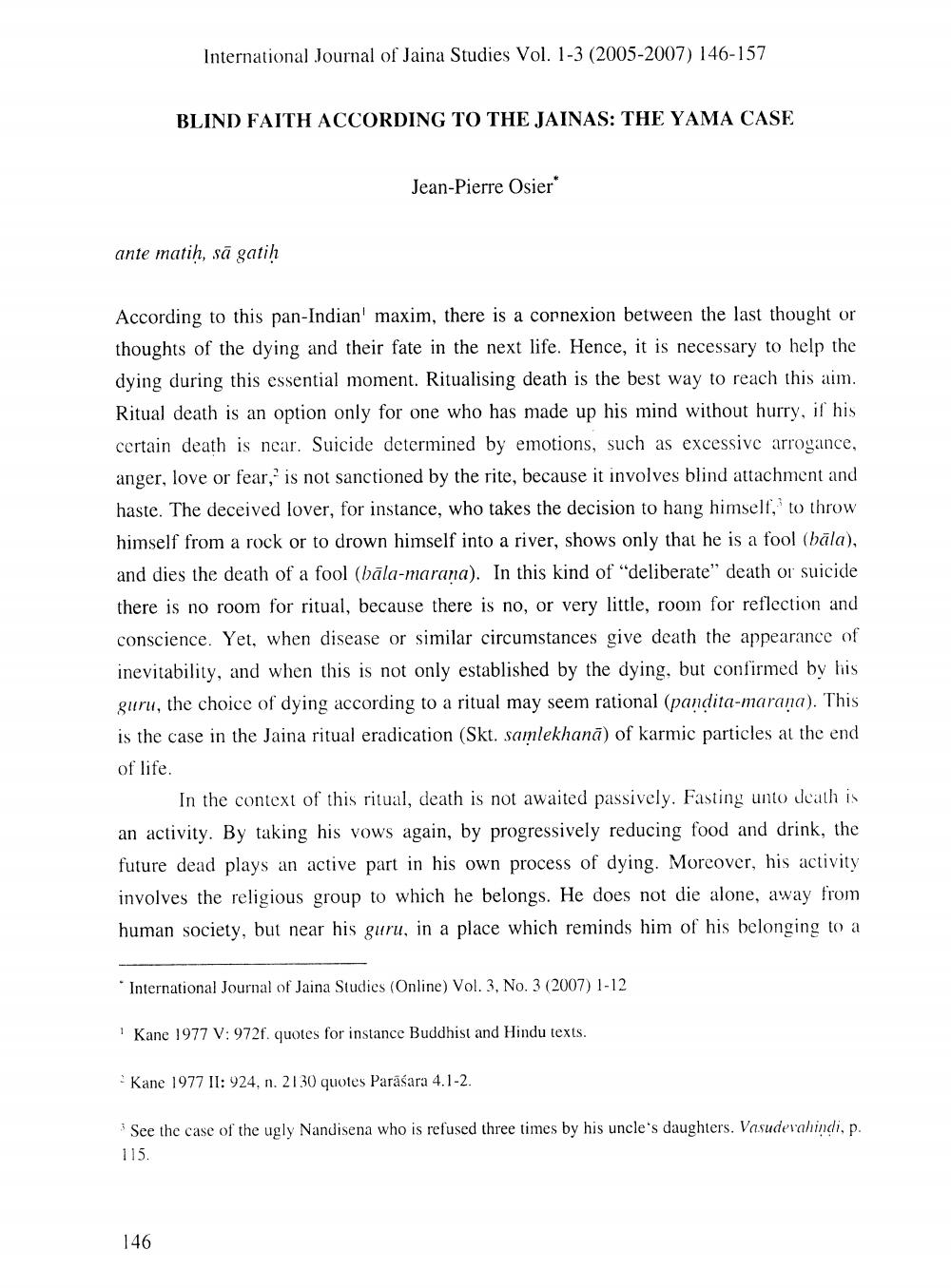________________
International Journal of Jaina Studies Vol. 1-3 (2005-2007) 146-157
BLIND FAITH ACCORDING TO THE JAINAS: THE YAMA CASE
Jean-Pierre Osier
ante matiḥ, sā gatih
According to this pan-Indian' maxim, there is a connexion between the last thought or thoughts of the dying and their fate in the next life. Hence, it is necessary to help the dying during this essential moment. Ritualising death is the best way to reach this aim. Ritual death is an option only for one who has made up his mind without hurry, if his certain death is near. Suicide determined by emotions, such as excessive arrogance, anger, love or fear,' is not sanctioned by the rite, because it involves blind attachment and haste. The deceived lover, for instance, who takes the decision to hang himself, to throw himself from a rock or to drown himself into a river, shows only that he is a fool (bāla), and dies the death of a fool (bāla-marana). In this kind of "deliberate" death or suicide there is no room for ritual, because there is no, or very little, room for reflection and conscience. Yet, when disease or similar circumstances give death the appearance of inevitability, and when this is not only established by the dying, but confirmed by his guru, the choice of dying according to a ritual may seem rational (pandita-marana). This is the case in the Jaina ritual eradication (Skt. samlekhanā) of karmic particles at the end of life.
In the context of this ritual, death is not awaited passively. Fasting unto death is an activity. By taking his vows again, by progressively reducing food and drink, the future dead plays an active part in his own process of dying. Moreover, his activity involves the religious group to which he belongs. He does not die alone, away from human society, but near his guru, in a place which reminds him of his belonging to a
* International Journal of Jaina Studies (Online) Vol. 3, No. 3 (2007) 1-12
Kane 1977 V: 972f. quotes for instance Buddhist and Hindu texts.
Kane 1977 II: 924. n. 2130 quotes Parāśara 4.1-2.
3 See the case of the ugly Nandisena who is refused three times by his uncle's daughters. Vasudevahindi, p. 115.
146




